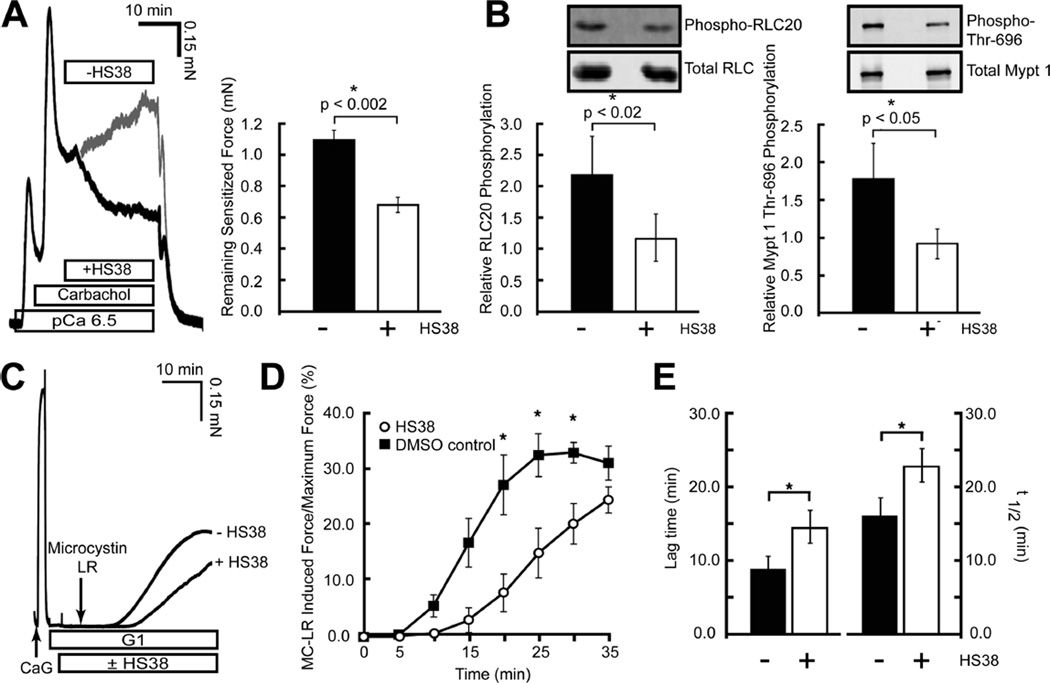Figure 5.
HS38 reduced the contractile force, RLC20 phosphorylation, and MYPT1 phosphorylation in Ca2+-sensitized rabbit ileum (A, B) and decreased the kinetics of Ca2+ independent force development (C, D). (A) Typical force trace and graphical representation showing the effect of HS38 (50 µM) on carbachol-induced, Ca2+-sensitized force in α-toxin permeabilized rabbit ileum. HS38 induced an approximate 30% decrease in the plateaued force at 20 min (mean ± SE, n = 7). (B) Western blot analysis of RLC20 and MYPT1 Thr696 phosphorylation following treatment with HS38 (50 µM). HS38 significantly reduced both RLC20 and MYPT phosphorylation levels associated with sensitized force maintenance in ileum samples (mean ± SE, n = 7). (C) Typical force trace showing the effect of HS38 on Ca2+-independent force production in rabbit ileum smooth muscle. (D) HS38 markedly decreased the kinetics of force development at pCa = 9.0 in response to phosphatase inhibition by MC-LR (10 µM). (E) Both the lag time to the onset of force (p < 0.05, n = 3) and the rate of force development (t1/2) (p < 0.02, n = 3) were increased following the addition of MC-LR in the presence of HS38 (mean ± SE, n = 3).

